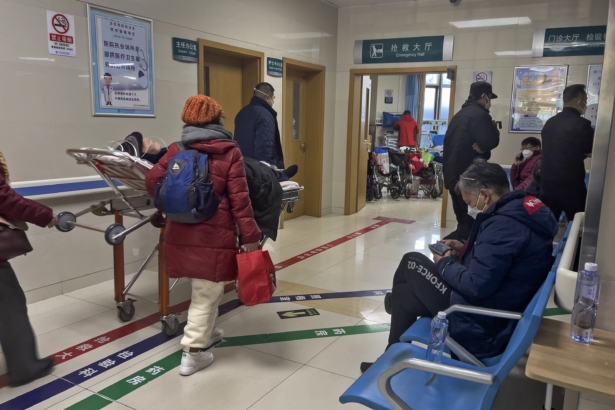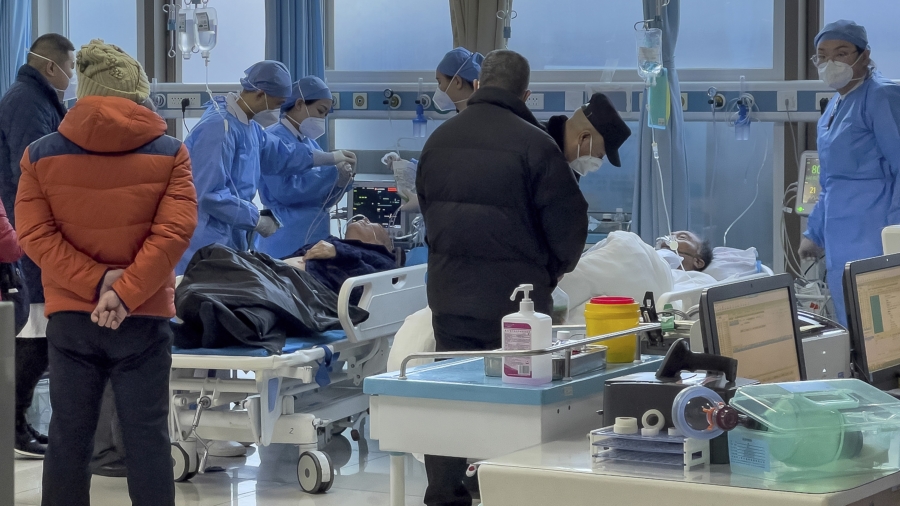BEIJING—China has suspended or closed the social media accounts of more than 1,000 critics of the regime’s policies on the COVID-19 outbreak, as the country moves to roll back harsh anti-virus restrictions.
The popular Sina Weibo social media platform said it had addressed 12,854 violations including attacks on experts, scholars, and medical workers and issued temporary or permanent bans on 1,120 accounts.
The Chinese Communist Party (CCP) allows no direct criticism of its tough lockdowns, quarantine measures, and mass testing, almost all of which it abruptly abandoned last month.
Criticism has largely focused on heavy-handed enforcement of regulations, including open-ended travel restrictions that saw people confined to their homes for weeks, sometimes sealed inside without adequate food or medical care. Anger was also vented over the requirement that anyone who potentially tested positive or had been in contact with such a person be confined for observation in a field hospital, where overcrowding, poor food and hygiene were commonly cited.
The social and economic costs eventually prompted rare street protests in Beijing and other cities, possibly influencing the CCP’s decision to swiftly ease the strictest measures.
As part of the latest changes, the Chinese regime will no longer bring criminal charges against people accused of violating border quarantine regulations, according to a notice issued by five of the regime’s departments on Saturday.
Individuals currently in custody will be released and seized assets returned, the notice said.
China is now facing a surge in cases and hospitalizations in major cities and is bracing for a further spread into less developed areas with the start of the Lunar New Year travel rush, set to get underway in coming days. While international flights are still reduced, authorities say they expect domestic rail and air journeys will double over the same period last year, bringing overall numbers close to those of the 2019 holiday period before the pandemic hit.
The Transportation Ministry on Friday called on travelers to reduce trips and gatherings, particularly if they involve elderly people, pregnant women, small children, and those with underlying conditions.
People using public transport are also urged to wear masks and pay special attention to their health and personal hygiene, Vice Minister Xu Chengguang told reporters at a briefing.
Nonetheless, the CCP is forging ahead with a plan to end mandatory quarantines for people arriving from abroad beginning on Sunday.

Beijing also plans to drop a requirement for students at city schools to have a negative COVID-19 test to enter campus when classes resume Feb. 13 after the holiday break. While schools will be allowed to move classes online in the event of new outbreaks, they must return to in-person instruction as soon as possible, the city education bureau said in a statement Friday.
However, the end to mass testing, a highly limited amount of basic data such as the number of deaths, infections, and severe cases, and the potential emergence of new variants have prompted governments elsewhere to institute virus testing requirements for travelers from China.
The World Health Organization has also expressed concern about the lack of data from China, while the United States is requiring a negative test result for travelers from China within 48 hours of departure.
The CCP has said the testing requirements being imposed by foreign governments—most recently Germany and Sweden—aren’t science-based and has threatened unspecified countermeasures. Its spokespeople have said the situation is under control, and reject accusations of a lack of preparation for reopening.
Meanwhile, Hong Kong also reopened some of its border crossings with mainland China on Sunday and allows tens of thousands of people to cross every day without being quarantined.
Hong Kong has been hard-hit by the virus and its land and sea border checkpoints with the mainland have been largely closed for almost three years.

